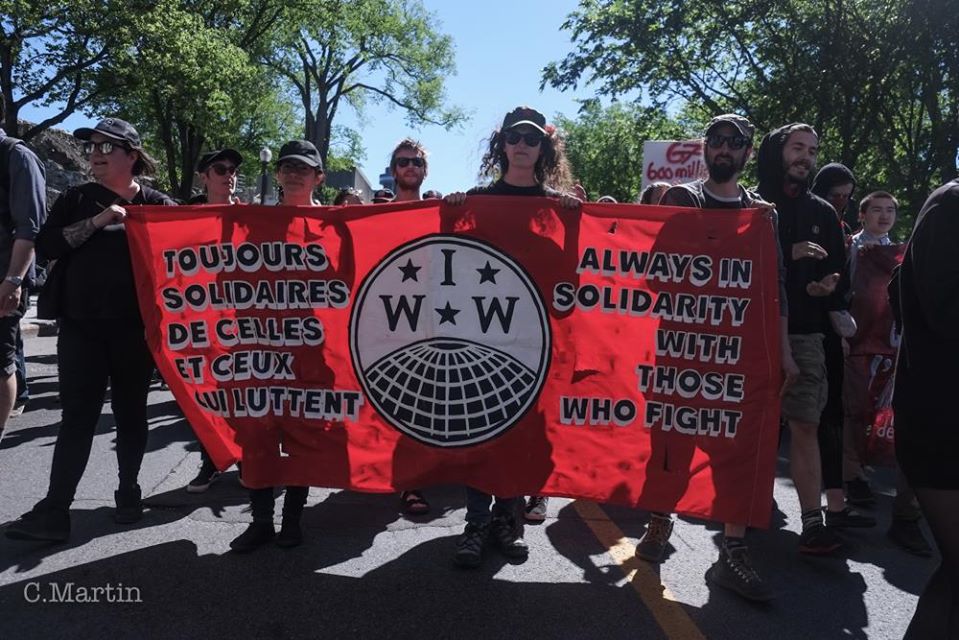Claim your Respect at the PA Supermarket!
Saturday 28 October in the afternoon, in front of the rue du Fort branch of Supermarché PA, there was a crowd of about twenty people. Union banner and distribution of leaflets to customers and passers-by, the SITT-IWW continues its Demand your respect campaign in solidarity with Evan, a former grocery store worker who had a hard time working for them.
Having worked at the branch on Avenue du Parc between October 2022 and August 2023, he does not emerge completely unscathed... From the moment he is hired, the workplace is not free from homophobic remarks or harassment towards employees. The work itself is not without risks either.. After months of enduring an unpleasant work environment, Evan puts his foot down in July and contacts his manager to ask that certain behaviors stop. In August, he must again give a letter to his manager, this time to ask not to be put again in a position where their health and safety could be in danger. Human resources, who usually seem to free themselves from a number of responsibilities, meet him and tell him that he is fired. The reasons given are ironically similar to his own criticisms of his managers.
He will file complaints with the CNESST and when an agent contacts him to follow up on his file, the latter mentions to him in passing that the PA Supermarket is regularly the target of complaints from workers. A small request for access to information from the CNESST allowed us to confirm this. : since 2004, there are more than twenty complaints for dismissal without just and valid cause, prohibited practices, psychological harassment, etc. which were filed against the branch where Evan worked. Almost no judgment appears, we can therefore assume that the employer always prefers to settle this confidentially with out-of-court agreements, so as not to leave a trace.
So far, five actions were carried out to put pressure on Supermarché PA to encourage it to offer financial compensation, a new employment record and an apology to Evan. The employer still has not proposed or offered anything, except sending a formal notice to Evan and a member of the union. We will therefore continue our solidarity campaign with our fellow worker!





